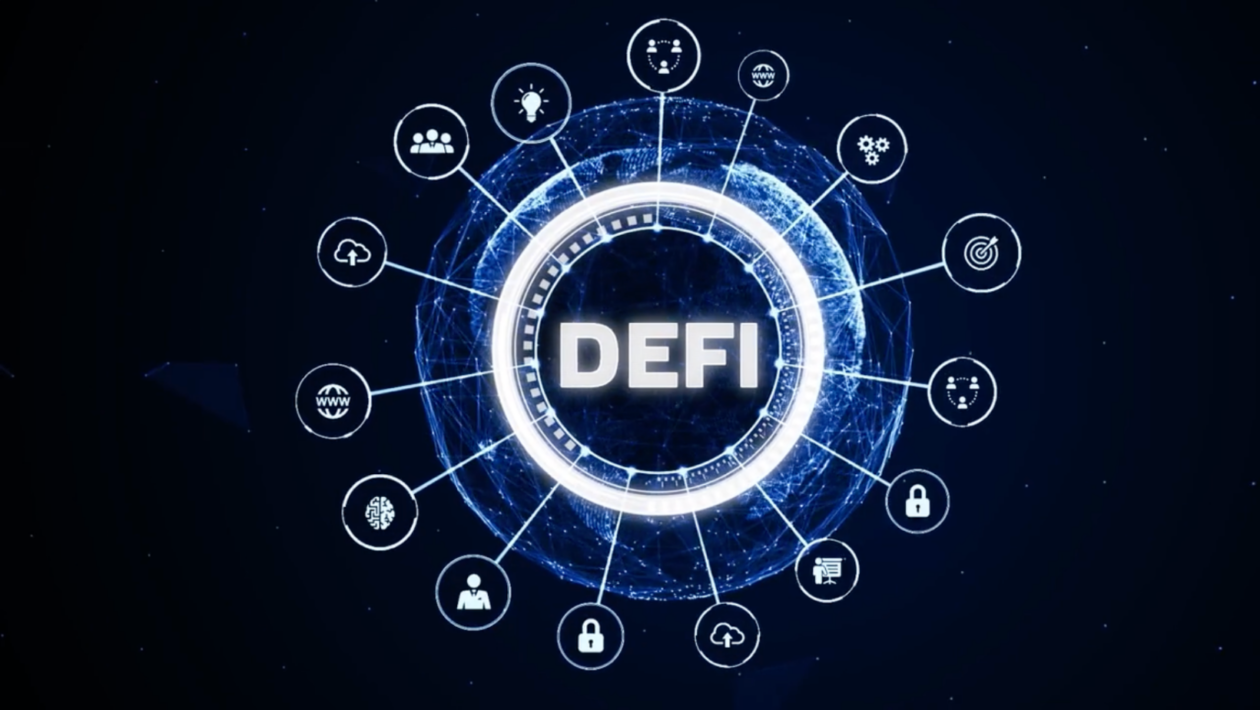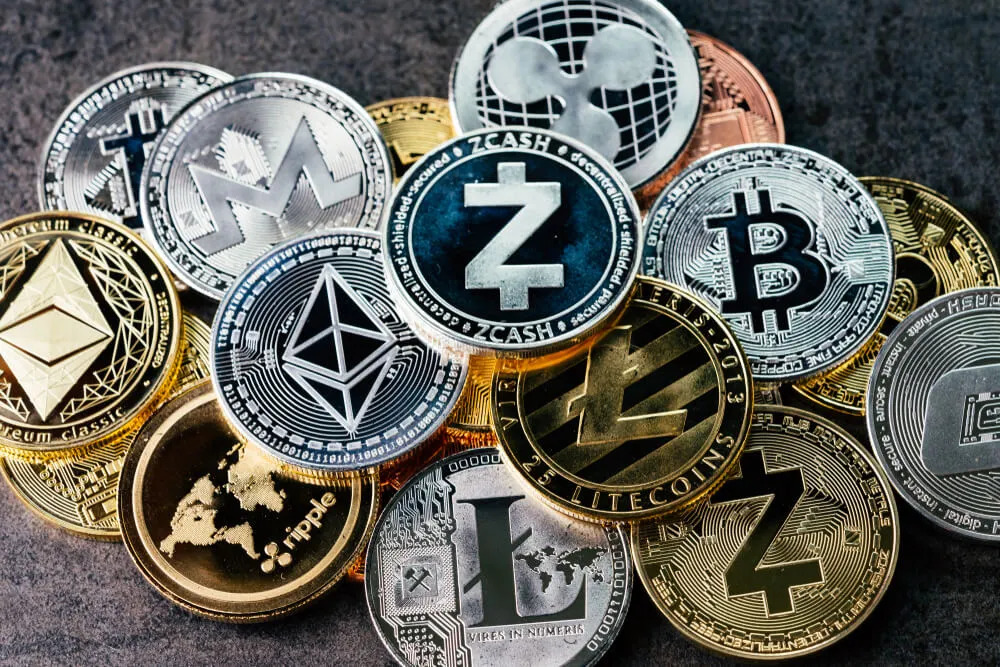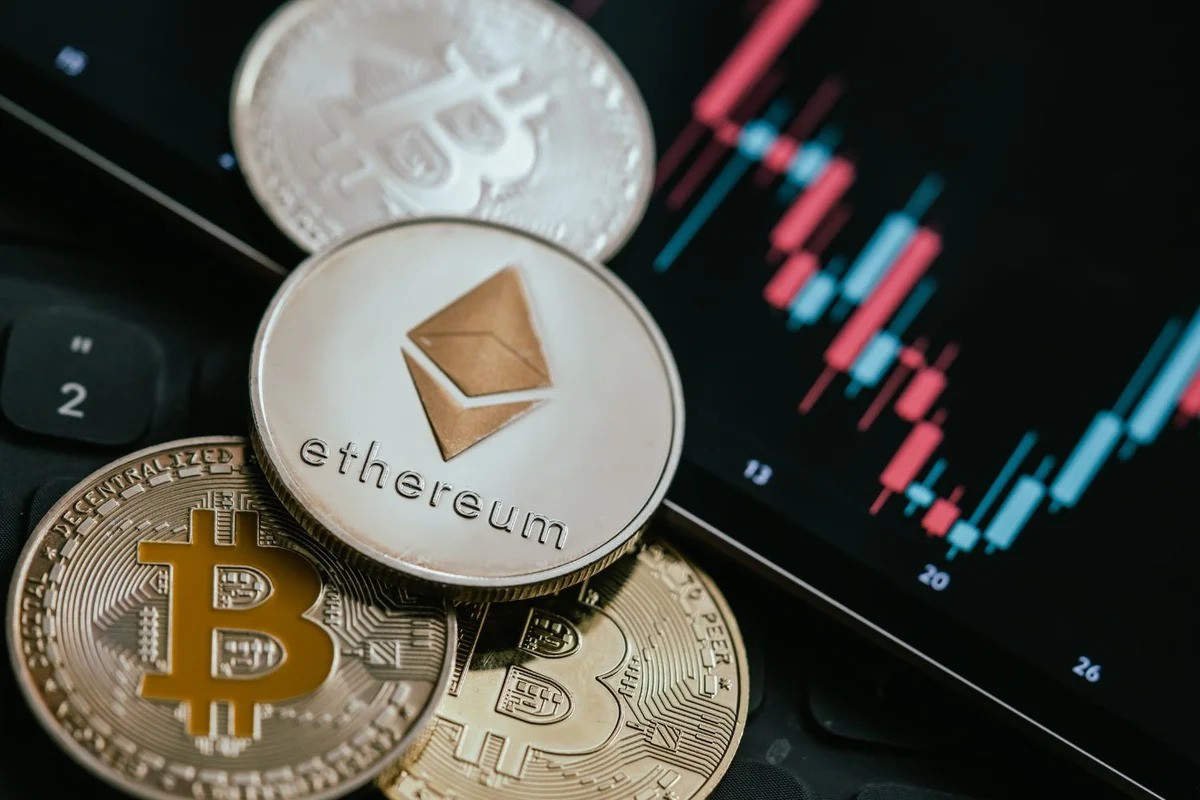DeFi And Altcoins - Diving Deep Into The World Of Cryptocurrency
In the world of digital currencies, DeFi and altcoins stand out as fascinating subjects. DeFi and altcoins represent a dynamic and evolving landscape within the world of cryptocurrency.
Author:James PierceReviewer:Camilo WoodFeb 05, 2024130 Shares13K Views

In the world of digital currencies, DeFi and altcoinsstand out as fascinating subjects. DeFi and altcoins represent a dynamic and evolving landscape within the world of cryptocurrency. In this article, we will delve deep into the world of DeFi and altcoins, uncovering the intricacies and potential they hold for investors and enthusiasts alike.
What Are DeFi Tokens?
DeFi tokens serve as the digital currency within decentralized finance ecosystems, which operate on blockchain technology without central oversight. These tokens facilitate various financial activities like lending, borrowing, and trading, eliminating the need for intermediaries such as banks.
Within DeFi platforms, these tokens have multiple functions. They can serve as a medium of exchange for accessing platform features, act as collateral for loans, or enable users to earn rewards for network participation.
Examples of popular DeFi tokens include Maker (MKR), governing the MakerDAO protocol for borrowing and lending stablecoins with cryptocurrency collateral; Compound (COMP), offering interest on crypto holdings lent to others; and Uniswap (UNI), powering the Uniswap decentralized exchange for cryptocurrency trading sans centralized intermediaries.
Benefits Of DeFi
- Financial inclusion - DeFi provides access to financial services for individuals who are underserved or unbanked by traditional financial systems. Anyone with an internet connection can participate in DeFi, regardless of their location or background.
- Global accessibility- DeFi operates on blockchain networks, enabling borderless transactions. Users can access DeFi services from anywhere in the world, without the need for intermediaries or geographic restrictions.
- Transparency and audibility- Transactions on DeFi platforms are recorded on public blockchains, providing transparent and auditable records. This transparency enhances trust among participants and reduces the risk of fraud or manipulation.
- Elimination of intermediaries- DeFi protocols operate through smart contracts, which automate the execution of financial agreements. This eliminates the need for intermediaries such as banks or brokers, reducing costs and increasing efficiency.
- Programmability and innovation- DeFi platforms are built on open-source protocols, allowing developers to innovate and create new financial products and services. This programmability enables the rapid development of decentralized applications (DApps) and fosters innovation within the ecosystem.
- Permissionless access- Users can interact with DeFi protocols without requiring permission from centralized authorities. As long as users have control of their private keys, they can participate in DeFi activities without the need for approval from intermediaries.
- Decentralized governance- Many DeFi projects implement decentralized governance mechanisms, allowing token holders to participate in decision-making processes. This democratic approach empowers the community to shape the direction of the platform and ensures a more inclusive governance model.
Challenges Of DeFi
- Security risks- DeFi platforms are susceptible to smart contract vulnerabilities, hacks, and exploits. The irreversible nature of blockchain transactions means that funds lost to security breaches are often irrecoverable, posing significant risks to users' assets.
- Regulatory uncertainty- DeFi operates in a rapidly evolving regulatory landscape, with varying levels of oversight across jurisdictions. Regulatory uncertainty can hinder the adoption of DeFi and create compliance challenges for projects and users.
- Scalability issues- Many DeFi platforms struggle with scalability limitations, resulting in network congestion and high transaction fees during periods of high demand. Scalability solutions such as layer 2 protocols and blockchain interoperability are being developed to address these challenges.
- User experience- The user experience of DeFi applications can be complex and intimidating for newcomers. Issues such as wallet management, gas fees, and transaction confirmation times can present barriers to adoption and limit the accessibility of DeFi services.
- Market volatility- DeFi tokens and assets are often subject to extreme price volatility, which can result in significant gains or losses for investors. Price fluctuations can be exacerbated by factors such as market speculation, liquidity constraints, and external events.
- Centralization risks- Despite the ethos of decentralization, some aspects of DeFi platforms may still exhibit centralization, such as the concentration of governance power among a small number of stakeholders or the reliance on centralized oracles for external data inputs. These centralization risks can undermine the resilience and trustlessness of DeFi systems.
- Liquidity challenges- DeFi protocols rely on liquidity to function effectively, but liquidity provision can be fragmented across multiple platforms, leading to liquidity silos and inefficiencies. Improving liquidity aggregation and incentivizing liquidity providers are ongoing challenges for the DeFi ecosystem.
What Are Altcoins?
Altcoins represent cryptocurrencies other than Bitcoin. The term "altcoin" derives from "alternative coin" and encompasses a wide range of digital currencies with different features and applications.
Altcoins are often classified based on their purpose, technology, or market capitalization. Examples of popular altcoins include Ethereum (ETH), Litecoin (LTC), and Bitcoin Cash (BCH).
Ethereum stands as the second-largest cryptocurrency, renowned for its smart contract capabilities. These contracts automate and enforce agreements using code, allowing for the development of decentralized applications (DApps) on the Ethereum blockchain. Litecoin, conceived as a lighter version of Bitcoin, offers faster and more economical transactions, making it a preferred choice for many users.
Bitcoin Cash emerged from a hard fork in the Bitcoin blockchain, aiming to enhance speed and affordability compared to Bitcoin. Its larger block size permits more transactions to be processed simultaneously. Altcoins serve various purposes, serving as mediums of exchange, stores of value, or means of engaging with specific blockchain networks.
Importance Of Altcoins In Crypto Ecosystem
Altcoins play a crucial role in the cryptocurrency ecosystem, contributing to its diversity, innovation, and resilience. While Bitcoin remains the dominant cryptocurrency by market capitalization and mainstream recognition, altcoins offer a wide range of functionalities and use cases that complement and expand upon Bitcoin's foundational principles.
One of the key aspects of altcoins is their ability to foster innovation through experimentation with new consensus mechanisms, governance models, and technological features. This experimentation drives forward the evolution of blockchain technology, leading to the development of novel solutions for various industries and use cases.
Moreover, altcoins contribute to the democratization of finance by providing alternatives to traditional financial systems and enabling greater financial inclusion. While Bitcoin laid the foundation for decentralized digital currency, altcoins have diversified the landscape by offering specialized solutions tailored to specific needs and preferences. For example, altcoins like Ethereum have pioneered the concept of smart contracts and decentralized applications (DApps), opening up new possibilities for programmable money and decentralized finance (DeFi).
Furthermore, altcoins catalyze competition and innovation within the cryptocurrency market. By offering different features, governance structures, and value propositions, altcoins incentivize continuous improvement and differentiation among projects. This competition fosters a dynamic ecosystem where developers strive to create better solutions, leading to advancements in scalability, interoperability, privacy, and security.
Altcoins also contribute to the liquidity and trading volume of the cryptocurrency market, providing traders and investors with diverse options for portfolio diversification and risk management. The availability of a wide range of altcoins allows market participants to tailor their investment strategies to their risk tolerance, investment goals, and market outlook. Altcoins also offer opportunities for early adopters and investors to identify promising projects with the potential for significant growth and adoption.
Risks Of Investing In DeFi And Altcoins
Investing in DeFi (Decentralized Finance) and altcoins can offer lucrative opportunities but comes with a range of risks and considerations that investors should carefully assess before participating in the market.
Market Volatility
DeFi and altcoins are known for their extreme price volatility. Market sentiment, technological advancements, regulatory announcements, and macroeconomic trends are just a few examples of the variables that can cause these assets' values to fluctuate significantly over short periods. Investors should be prepared for the possibility of substantial price swings and potential losses.
Lack Of Regulation
The DeFi and altcoin markets are largely unregulated compared to traditional financial markets. Regulatory uncertainty can expose investors to legal risks, as well as uncertainties regarding taxation, investor protection, and compliance requirements. Changes in regulatory policies or enforcement actions could have a significant impact on the value and legality of certain assets or investment activities.
Security Risks
DeFi platforms and altcoin projects are vulnerable to various security risks, including smart contract vulnerabilities, hacking attacks, and exploits. Security breaches can result in the loss of funds, disruption of services, and damage to the reputation of affected projects. Investors should conduct thorough due diligence on the security measures and audit history of the projects they are considering investing in.
Liquidity Constraints
Liquidity refers to the ease with which assets can be bought or sold in the market without significantly affecting their price. Some altcoins and DeFi tokens may suffer from liquidity constraints, particularly during periods of market stress or low trading volumes. Illiquid assets can be difficult to sell at desired prices, leading to price slippage and potential losses for investors.
Technological Risks
DeFi and altcoin projects often rely on cutting-edge technologies and complex systems. Technical issues such as network congestion, software bugs, and protocol upgrades can disrupt the functioning of platforms and undermine investor confidence. Investors should assess the technical robustness and scalability of projects before committing capital.
Counterparty Risks
DeFi platforms may involve interactions with various counterparties, including decentralized exchanges, lending protocols, and liquidity pools. Counterparty risks arise from the potential for defaults, insolvencies, or malfunctions of these counterparties, which could result in the loss of funds or delays in accessing assets. Investors should evaluate the credibility and track record of counterparties before engaging in transactions.
Speculative Nature
Many altcoins and DeFi tokens are speculative investments that lack intrinsic value or utility beyond their potential for price appreciation. Speculative bubbles and hype-driven market dynamics can lead to unsustainable valuations and eventual market corrections. Investors should be cautious of FOMO (Fear of Missing Out) and conduct thorough research to distinguish between legitimate projects and speculative schemes.
High-Risk Investment
Investing in DeFi and altcoins is inherently risky and may not be suitable for all investors. Due to the high-risk nature of these assets, investors should only allocate capital that they can afford to lose entirely. Diversification strategies, risk management techniques, and long-term investment horizons can help mitigate the impact of market volatility and reduce overall portfolio risk.
DeFi And Altcoins - FAQ
What Is The Difference Between DeFi And Crypto?
Digital currency (Crypto) is one of the asset types that can be used in DeFi. However, in turn, DeFi offers a wider range of financial services created based on blockchain technology that help you buy, sell, borrow, or earn money.
Is Binance A DeFi?
Binance's world-class matching engine ensures that your crypto trading experience is quick and reliable. Trading crypto on Binance is easy and intuitive. You only need a few steps to buy DeFi Tokens instantly. Millions of global crypto users trust us.
Is NFT And DeFi The Same?
NFTs and DeFi are distinct trends within the blockchain ecosystem, serving different purposes and catering to different user needs. NFTs bring uniqueness and provenance to digital assets, while DeFi revolutionizes the way traditional financial services are accessed and executed through decentralization and automation.
Wrapping Up
The decentralized finance ecosystem continues to expand, offering innovative solutions and disrupting traditional financial systems. Meanwhile, alternative cryptocurrencies present diverse investment options, each with its own set of opportunities and risks. By understanding and engaging with DeFi and altcoins, we can navigate this ever-changing landscape with confidence and insight, embracing the potential they hold for the future of finance.

James Pierce
Author

Camilo Wood
Reviewer
Latest Articles
Popular Articles

